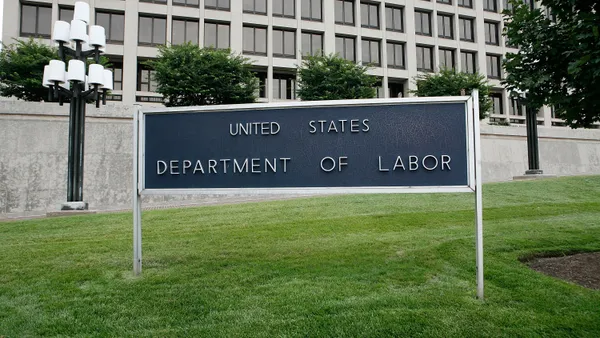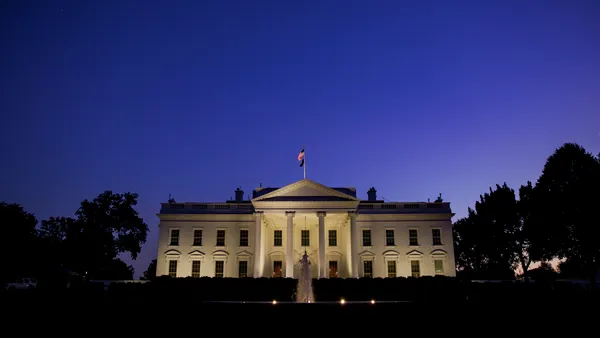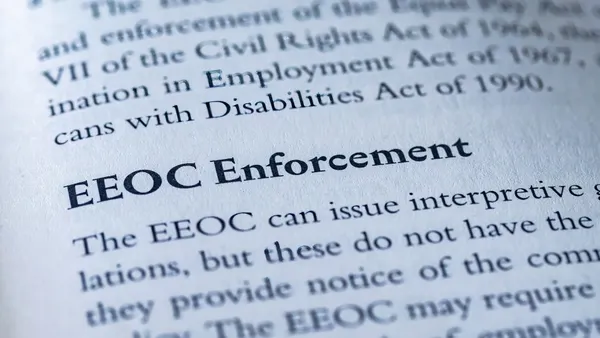Dive Brief:
- A Navy secretary must pursue her retaliation claim through the Navy’s administrative procedure before she can sue in court, the District of Columbia U.S. Circuit Court of Appeals held (Webster v. Del Toro, No. 21-5040 (D.C. Cir. Sept. 20, 2022)).
- The secretary complained to the Navy that an IT contractor was subjecting her to a hostile work environment by telling others she was trouble and to watch out, according to court documents. She also alleged that her supervisor, a Navy captain, permitted the harassment. The Navy found her complaint unproven, and she appealed to the U.S. Equal Employment Opportunity Commission, which agreed with the Navy. However, the EEOC did find that the captain may have retaliated against the secretary by disclosing her earlier EEO charges to the contractor. She sued the Navy for retaliation under Title VII of the Civil Rights Act of 1964.
- The lawsuit was properly dismissed, the D.C. Circuit held. “Section 717(c) [of Title VII] consists of one long, convoluted sentence, but this much is clear: It requires a federal employee to present a ‘charge’ or ‘complaint’ of discrimination or retaliation to the employing agency before presenting it in court,” the panel explained. The secretary’s complaint did not present a retaliation charge, and without more, she was not permitted to litigate it, the court said.
Dive Insight:
Like employees in the private sector, federal workers may not go directly to court with a Title VII complaint. Other than charges of age or equal pay discrimination, Section 717 requires federal employees to first try to settle their complaint with their employing agency under an extensive administrative procedure, according to an EEOC management directive.
The first step is contacting their agency’s EEO counselor, an EEOC guidance explains. If the dispute isn’t settled through counseling, the employee can file a formal complaint against the agency with its EEO office. Following an investigation, if the employee doesn’t agree with they agency’s determination, the employee can appeal to the EEOC or challenge the decision in court.
While the administrative procedures differ, the standard is the same for both private sector and federal employees: “Outside the context of hostile work environment claims, an ‘unlawful employment practice’ under Title VII is a ‘discrete retaliatory or discriminatory act’ that must be individually charged and filed within the appropriate deadline,” the D.C. Circuit explained. A charge alleging one unlawful practice does not permit the employer to challenge others, it emphasized.
The D.C. Circuit construes administrative complaints “charitably in favor of the employee,” the panel noted. But in this case, the secretary’s complaint asserted only that the captain allowed the contractor to subject her to a hostile environment on or about a specific date. “No amount of liberal construction” could transform this claim into only that the captain retaliated against her a few weeks later by disclosing her past EEO activity, the court said.
Also, during the Navy’s investigation, the secretary never indicated that she wished to pursue a retaliation claim, the D.C. Circuit noted. Instead, she mentioned in passing that the captain may have told the contractor about her earlier EEO charges but made it clear that her complaint was not about his conduct.










